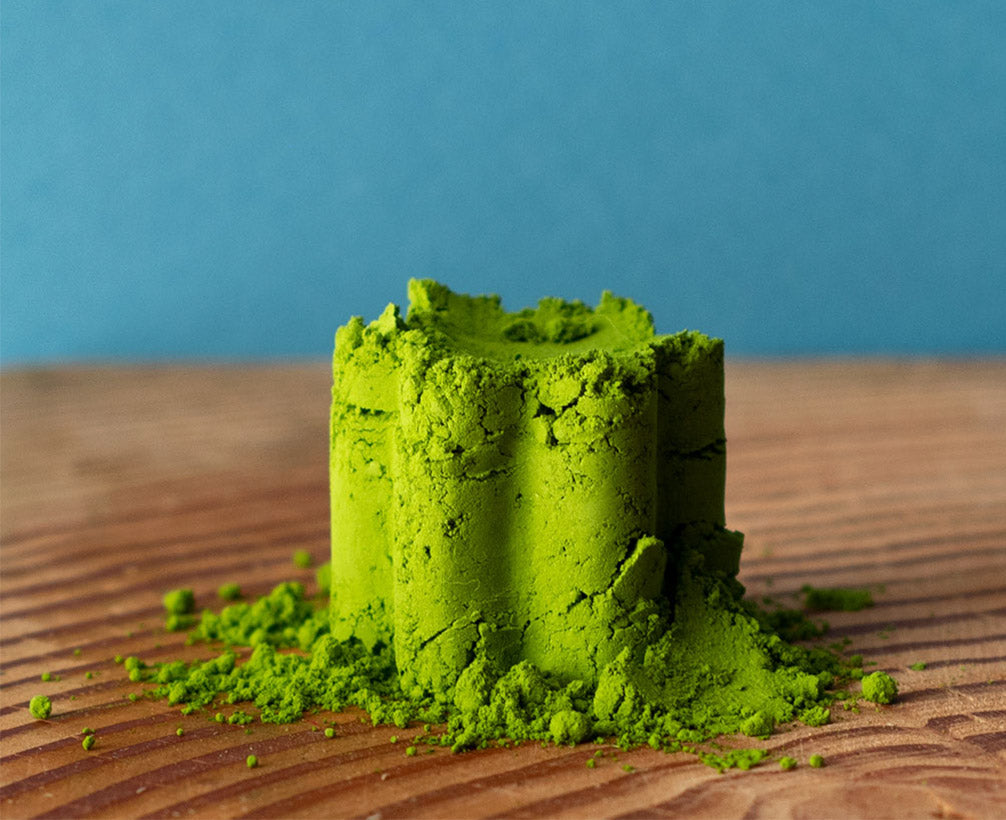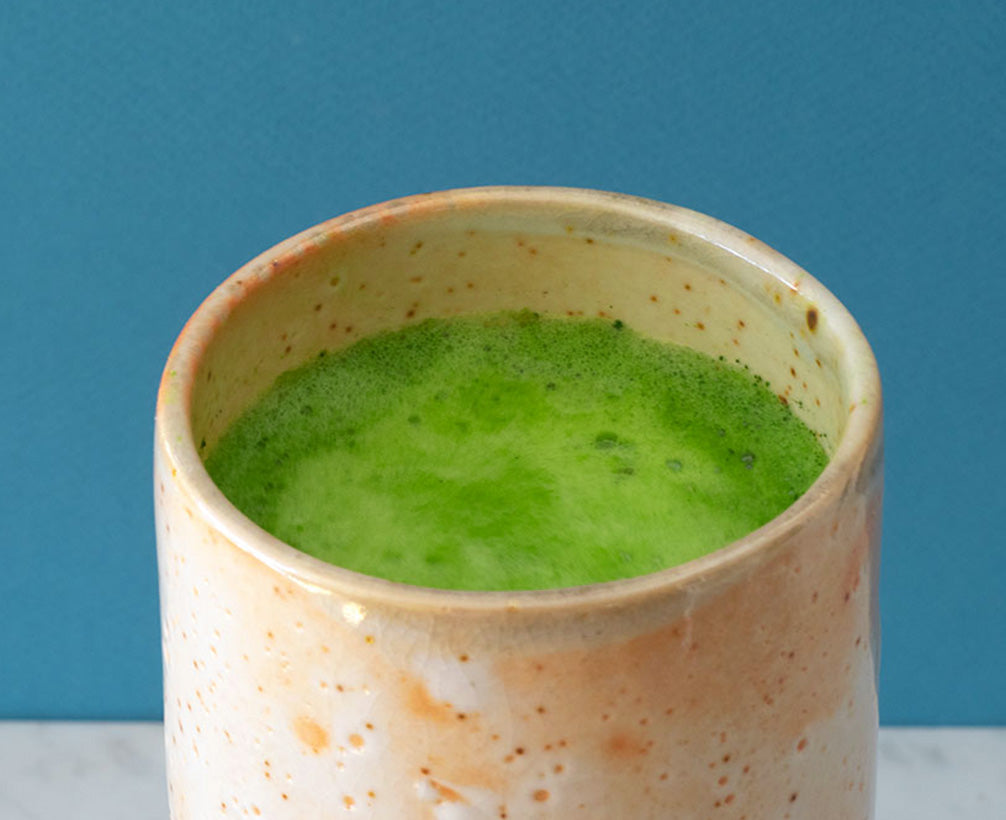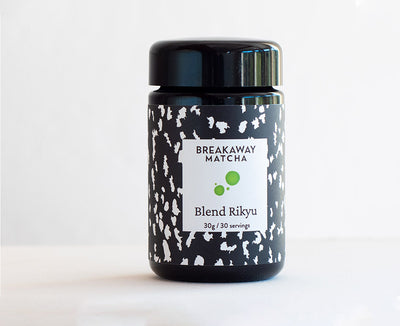
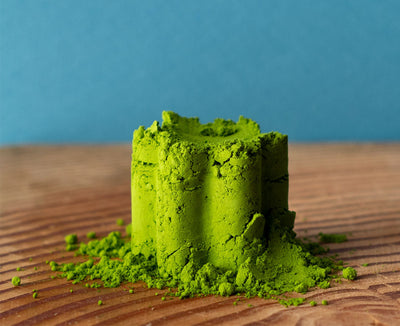
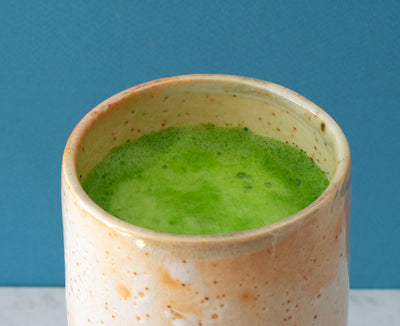
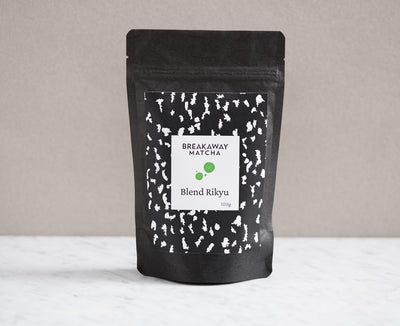
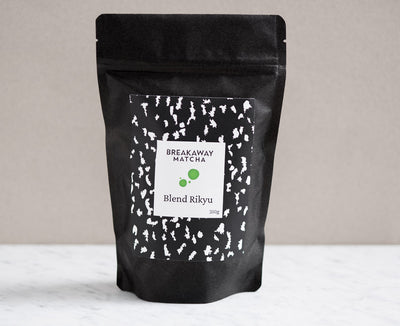
Blend Rikyu Matcha
dreamy, electric, spellbinding
This tea, whipped up thick, seems to send memory into overdrive; into a contemplative state. We think Sen No Rikyu, the most masterful and original matcha connoisseur in Japan's very long history of tea, would have marveled at its rich, umami-laden flavor, brilliant color, and ridiculously long finish.
This is dreamy tea that tastes beautiful in any concentration, thick or thin, and sates like nothing else. From Ujitawara, Kyoto.
And we can't help but love Rikyu even more after a comment from one of California's most distinguished tea teachers, Douglas Huskins, who said: "If Rikyu were alive today, I suspect his modernist approach to tea would look a lot like Breakaway Matcha's."
Blend Rikyu Matcha
Breakaway Promise
We stand behind our teas and teaware, and want you to be not just satisfied with them, but thrilled. If for any reason you're not, just let us know and we'll do our best to make it right.
Our Preparation Method


Our Matcha Packing Method
Keeps matcha freshest and most vibrant
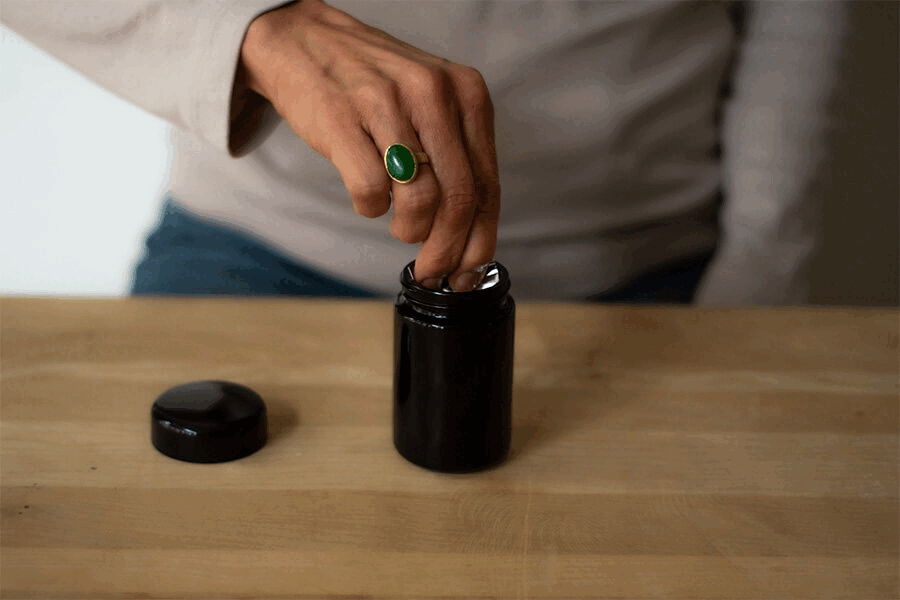
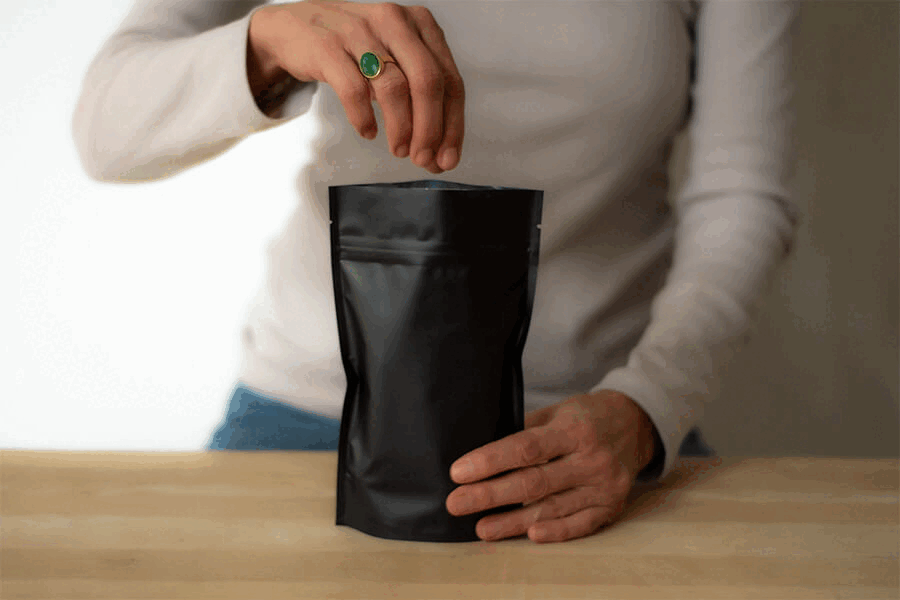
Your tea arrives in a mylar bag that has been flushed with nitrogen (to eliminate all oxygen, an enemy of matcha) and sealed. We send them to you this way to maximize freshness and vibrancy. You simply snip off the end of the bag and transfer the matcha into the jar. Always store your matcha cold (in your fridge), in black glass.
Your tea arrives in mylar bags that have been flushed with nitrogen (to eliminate all oxygen, an enemy of matcha) and sealed. We send them to you this way to maximize freshness and vibrancy. You simply snip off the end of the bag and transfer the matcha into the jar. Always store your matcha cold (in your fridge), in black glass.
Your Questions Answered
Mainly because the farmers and processors care so much; their processes take longer, require more steps, and are just harder. They’re pretty obsessed with producing Japan’s tastiest and healthiest matcha, and we don’t mind paying them well for the extraordinary product they produce. Rarity comes into it as well -- some blends, especially the named blends (Kamakura, Rikyu, Jizo, Hikari, Satoshi, and Daphne) have extremely limited production. These teas are hard to produce.
No. No sugar, additives, or any other nonsense. It’s 100% extraordinary green tea leaves, ground up into a fine powder.
Location on the tea plant, mainly. Hyperpremium is the baby leaves; we only use the newest growth. Imagine baby vegetables, baby herbs, microgreens. They haven’t had much time to develop much molecular complexity, so there are no bitter or astringent notes, just clean, chlorophyll-packed umami.
Leaves used for coldbrew are slightly older, and have a little more biocomplexity to them. That complexity does add some bitterness and astringency, but it’s undetectable when prepared with ice water, so it tastes rich and creamy. Yields are tiny for the hyperpremium, and yields are bigger with coldbrew (the leaves themselves weigh more, and are larger, hence bigger yields).
This term has lost most of its meaning. Because there is no governing body of any type that monitors/controls what can be labeled ceremonial, anyone can -- and does -- use this moniker to connote quality, even though much of the “ceremonial” matcha on the marketplace is in fact barely culinary -- much of it could be better described as “industrial.”
Moreover, many tea ceremonies in Japan notoriously serve sub-par matcha. In the end, many of the ceremonies aren’t really about tea at all, they’re about choreography and pedigree. Sometimes the teas are tasty, but more often they’re oxidized and bitter and astringent; hallmarks of culinary (or worse) matcha.
Some people insist on organic (generally for good reasons), so we searched hard for years and finally found what we feel is the tastiest and best organic matcha in the domestic Japanese market. However, our conventionally grown matcha is utterly safe, and it tends to taste better because its umami/amino acid structure is more pronounced.

